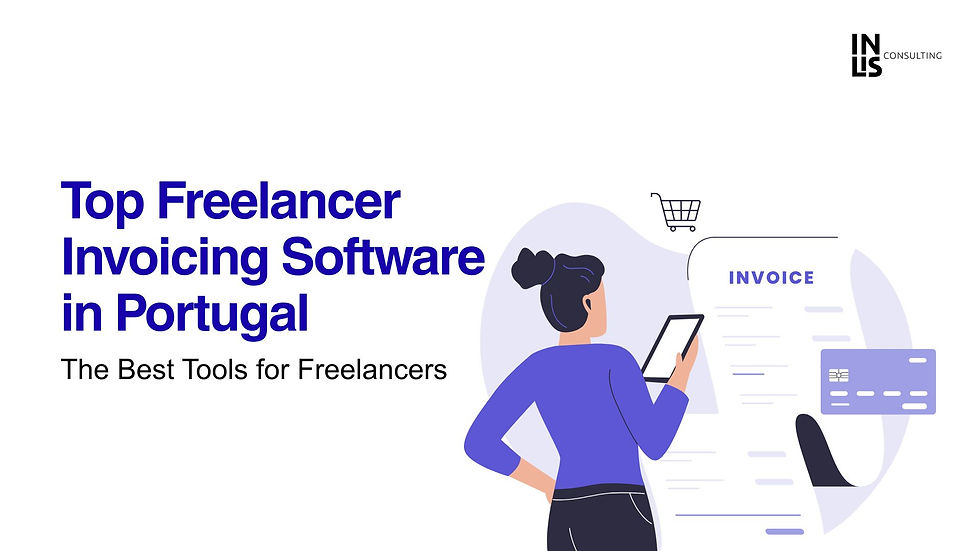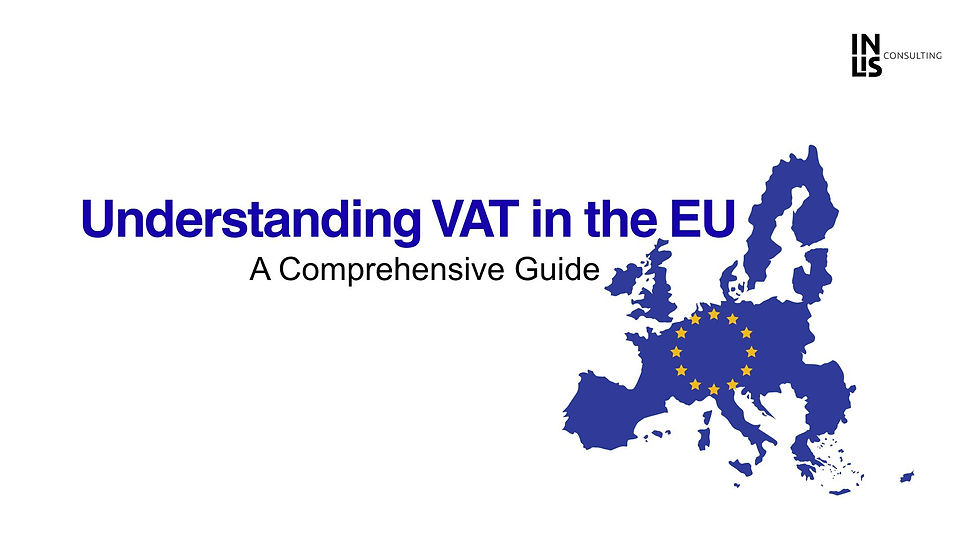Crypto Taxes & Capital Gains in Portugal (2025): What You Need to Know
- INLIS Consulting
- Aug 1
- 3 min read
Portugal’s crypto tax regime has evolved significantly since 2023, bringing clarity and structure, but also new obligations. Here’s a comprehensive, up-to-date guide for investors and professionals navigating 2025 rules.

1. How Crypto Income Is Classified
Portuguese law divides crypto-related income into three main tax categories under the Personal Income Tax Code (PIT):
Category G – Capital Gains
Selling crypto for fiat within 365 days: taxed at a flat rate of 28%.
Holding crypto for over 365 days: generally tax-exempt, unless the asset qualifies as a security or is held via a non-EEA jurisdiction
Applies the FIFO method when calculating gains and losses.
Category E – Passive Income (Staking/Lending)
Rewards from staking, lending, or yield farming are taxed at 28% when converted to fiat, unless the taxpayer opts to aggregate them into progressive tax brackets.
Category B – Business or Professional Income
Crypto mining or trading, considered a professional activity, is taxed as business income.
Under the simplified regime (for gross income ≤ €200,000/year):
15% coefficient for trading/professional operations,
95% coefficient for mining
Resulting income taxed via progressive rates (14.5% up to 53%) with solidarity surcharges if applicable
2. Key Rates & Exemptions
Type of Activity | Tax Category | Rate / Treatment |
Crypto sold < 365 days | Category G | 28% flat (or progressive if aggregated) |
Crypto held > 365 days | Category G | Exempt (0%), with exceptions |
Staking / Lending income | Category E | 28% flat (or progressive if elected) |
Mining or trading profession | Category B | Simplified regime: 15% / 95% coefficient, then progressive rates |
Crypto-to-crypto swaps | N/A | Not taxed; value deferred until fiat |
Note: Progressive tax bands span 14.5% to 48% plus a solidarity surcharge of 2.5%–5% for high earners
3. Deferral & Deferment: Crypto-to-Crypto Swaps
Portuguese rules allow you to defer taxation if you exchange one crypto for another (e.g., BTC to ETH or stablecoins). Tax is only triggered when you convert crypto into fiat money, giving holders flexibility to rebalance portfolios without immediate tax consequences.
4. Reporting & Documentation Requirements
Crypto income (including exempt long-term gains) must be reported annually via Modelo 3 IRS between April 1 and June 30; payment is due by August 31. inlis.pt
Maintain detailed records (FIFO method) of every transaction, including dates, volumes, acquisition costs, wallet addresses, and exchange rates.
Registered Portuguese crypto platforms must report user transactions annually by January 31 to the Tax Authority for cross-checking reporting accuracy.
5. Stamp Duty & Gift/Inheritances
Cryptocurrency transfers through donation or inheritance may incur a 10% stamp duty, unless exempt (e.g., transfers to immediate family members). These transfers are still reportable even if exempt.
6. Residency Status & Tax Implications
Changing Portuguese tax residency is treated as a capital gains event, even if crypto isn't sold, to capture gains up to that date.
Taxpayers from non-EEA jurisdictions or countries without data-sharing treaties cannot benefit from long-term exemption and face a 35% flat rate on capital gains from crypto and investment income.
7. Professional Traders: Are You Considered a Business?
If crypto activity is frequent and income-driven, it may be classed as a professional or business activity:
Criteria include trading frequency, volume, holding period, platforms used, and whether trading is the main income source.
In such cases, income is Category B and subject to progressive taxation—even if you didn’t formally register a business—so professional advice is strongly recommended.
Final Advice: Minimizing Tax, Maximizing Compliance
Hold investments longer than 365 days to benefit from tax exemption on capital gains.
Use tax aggregation (“englobamento”) to leverage progressive rates if beneficial.
Compile accurate records and consider using crypto tax software or hiring specialized advisors.
Monitor your residency status and transactions in non-EU/EEA jurisdictions to avoid triggering loss of exemption.
Professional traders should maintain organized accounts to claim adjusted cost deductions and report properly.
Portugal’s once crypto‑friendly status has shifted, but it remains competitive for long‑term investors with strategic tax planning. The 2025 rules are clear yet nuanced: by holding assets over a year, carefully choosing aggregation, and keeping rigorous records, investors can manage tax exposure effectively and remain compliant under the evolving legal framework.




Comments